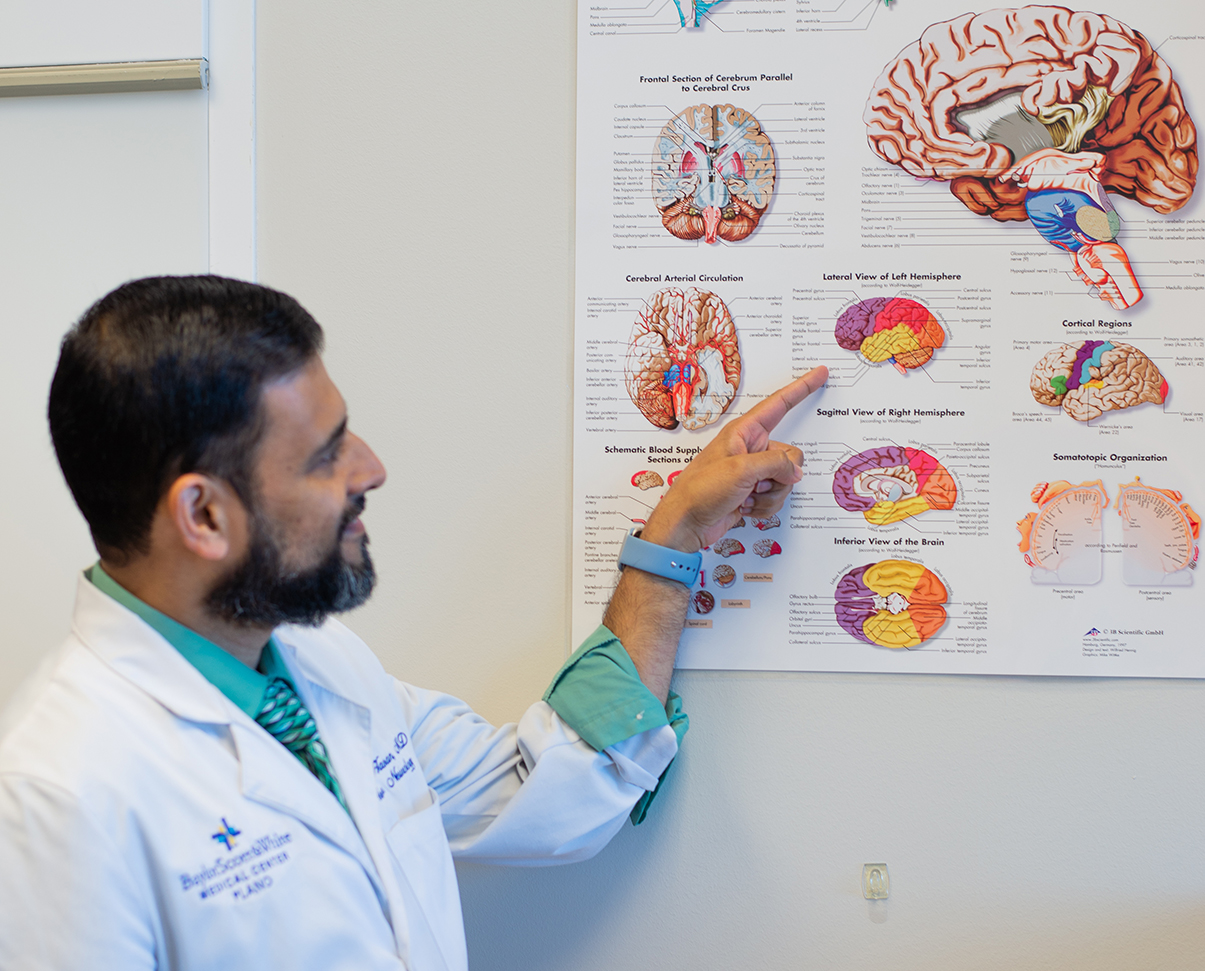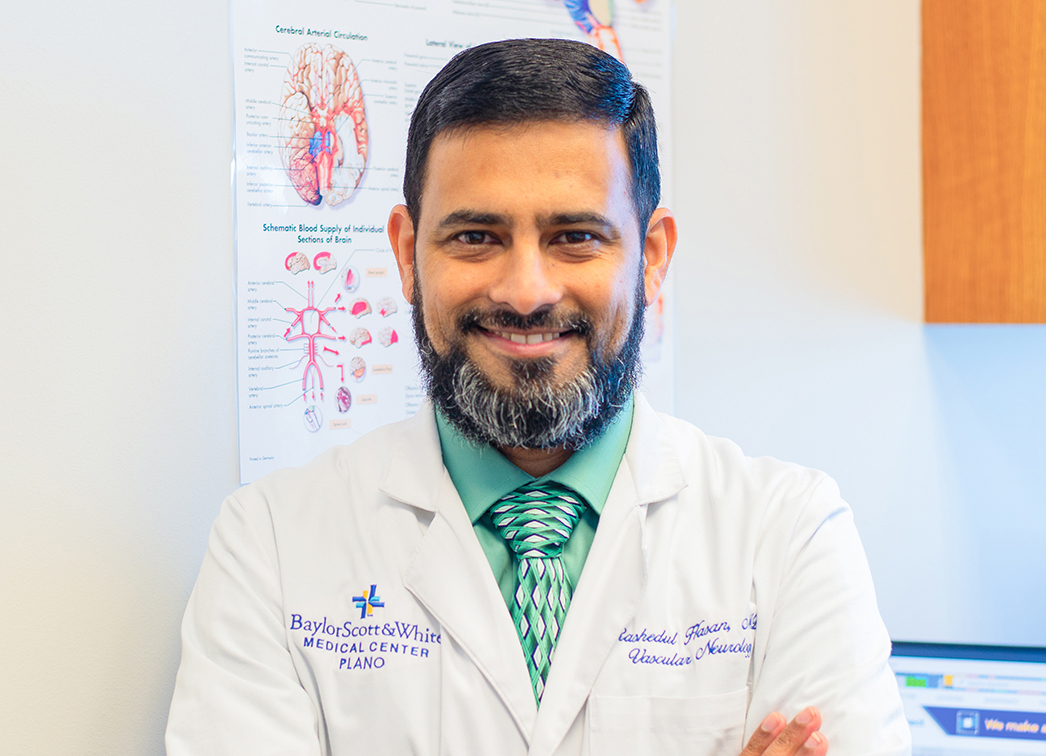According to the Centers for Disease Control and Prevention and the American Stroke Association, statistics show:
• Every 40 seconds, someone in the United States has a stroke.
• Every 3.5 minutes, someone dies from a stroke.
• Every year, 800,000 people in the United States have a stroke.
• Stroke is the leading cause of long-term disabilities in the United States.
• Every minute without treatment following a stroke, 2 million brain cells die.
“Time is brain; time lost is brain lost,” according to Rashedul Hasan, M.D., Medical Director of Comprehensive Stroke Program for Baylor Scott & White Medical Center – Plano. There are two types of strokes – the clotting type and the bleeding type. Eighty-five percent are due to blood clot and the rest, 15%, are due to brain bleeding.
Dr. Hasan says even though stroke is the fifth leading cause of death in this country, 80% of strokes are preventable. The number one cause of stroke is uncontrolled hypertension. Among others are diabetes, high cholesterol levels, Atrial Fibrillation, smoking, illicit drug use, obesity, and a sedentary lifestyle. By keeping these risk factors under control, you can markedly lower your risk of future stroke.
Who is at risk and why?
Dr. Hasan says a stroke can happen at any age; know your own risk factors. Based on the age group the risk factors may vary. Childhood stroke is typically linked to genetic causes but stroke in early twenties or thirties is related to preventable risk factors. Unfortunately, because of the increased prevalence of childhood obesity, sedentary lifestyle, and illicit drug use the incidence of stroke among this age group is rising. In the elderly one third of strokes happen due to irregular heart rhythm called Atrial Fibrillation which increases your stroke risk by five times compared to general population. Another risk factor in the elderly is cancer which changes the blood chemistry and increases the tendency of blood clot formation in your system.
Some cancers, when metastasized, can mimic stroke symptoms, especially in breast, melanoma, kidney, colon and lung cancers, but tests can determine a cancer’s relationship to a stroke, all on a case-by-case basis.
“Stroke rates are increasing among young people and decreasing among the elderly as they are taking a more preventive approach to controlling their risk factors,” Dr. Hasan says.
Why?
Dr. Hasan is a huge proponent of the Mediterranean Diet to help mitigate stroke risk.
“The Mediterranean Diet focuses on healthy foods such as fruits, vegetables, whole grains, beans, nuts, lean proteins, and heart healthy fats.
“Once stroke patients are discharged from the hospital, they should follow-up with their neurologist and their primary care provider for risk factor management and to promote education and prevent a readmission.
Dr. Hasan says if you witness a stroke, call 911 rather than trying to drive a stroke victim to the hospital. Calling 911 is a more efficient strategy since EMTs pre-notify the ER they are bringing a stroke victim, and the stroke team awaits the arrival, he says.
“The time window is very narrow, and one should get to the hospital immediately. A stroke victim can be treated medically up to 4.5 hours of the ‘last known normal,” and up to 24 hours after a stroke, wherein it is possible for a catheter device to pull out a blood clot but any delay is unwise.”
Don’t lose time, and don’t lose brain. For more information, visit BSWHealth.com/PlanoNeuro.
Physicians provide clinical services as members of the medical staff at one of Baylor Scott & White Health’s subsidiary, community or affiliated medical centers and do not provide clinical services as employees or agents of Baylor Scott & White Health or those medical centers

The above post is sponsored content. The above post is sponsored content.





